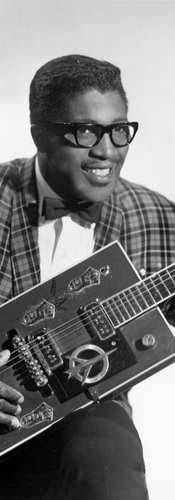With the release of Beyoncé's historic Cowboy Carter, I’ve been thinking a lot about the comparisons this broken barrier has with a certain break done all the way back in 1986.
‘86 saw the release of Run DMC’s cover of Aerosmith’s 1975 hit Walk this Way and effectively broke down some of the biggest barriers that were upheld between hip hop and the mainstream: race. There was a certain fear around hip hop becoming popular that existed in nothing but racism and prejudice against black Americans, something that prevented the explosion of the genre with an American and world audience. The critiques then are very similar to the ones used now: how the songs are overtly sexual, overtly violent, overtly chock full of what many deem inappropriate for a general audience. What many failed to realize, and still do, is that popular music [especially rock music] has always had these factors, but rock was seen as a “white” genre so it was more societly acceptable for these topics to be spat out. Rock and Roll, of course, was created from black music, and it’s most prominent founders were the likes of Chuck Berry, Little Richard, Bo Diddley, Sister Rosetta Tharpe, aka black artists. And that’s without discussing some of rock's biggest and brightest stars of the 60s and 70s like Jimi Hendrix, Tina Turner, Billy Preston - you get the gist. When rock became white was with Elvis Presley, who was able to get black artists work played by being the one to sing it for audiences, and since then it was an uphill battle for rock music to return to it’s roots.
The Godfathers [and mother] of Rock and Roll: Berry, Diddley, Tharpe, Richard.
It’s pointless to name just one song or artist that has written a rock song about sex, or drugs, or violence. It’s a standard, such a standard to the point where it would be more difficult to find an album that doesn’t include one of those things in the rock sphere. Aerosmith has always been particularly raunchy, that’s not hard to see from a simple glance at their catalog or their band members. From Back in the Saddle to Rag Doll to Flesh it’s all mildly scummy, a good listen if you don’t think too hard, but scummy nonetheless. Aerosmith had gotten away with a lot, saying a lot in hits that would be seen as deplorable today for a few pretty excusatory reasons ['it was the time', 'it's not that serious', etc], but in no context does their success make much sense in a landscape where other artists were prevented from popularity for the same content. Aerosmith is not a very political band, they are party music. Old-School Hip Hop, the work created through the early 80s, was bookmarked by two things: its party songs and its social commentary songs. These two different types of popular song within the genre aren’t dissimilar to classic rock songs, many of which protest or call for a good time as well. What was different was the predominantly black creators and demographic of hip hop, and the systematically racist fashionings of pop culture and society within America. It was harder for an artists to reach a world audience because of how hard it was to reach most American audiences, and that’s where Run-DMC comes in.
Run-DMC is one of the most important groups in not only hip hop or American music, but music in general. They were the first hip hop group to break down the barriers of the mainstream, being the first group of the genre with a gold and platinum record, to be on the cover of Rolling Stone, receive a Grammy nomination, and first to have their videos on

MTV. Needless to say, they were pretty damn big, but that didn’t apply to the genre. In 1986, they partnered with Aerosmith to cover their hit Walk this Way and ended up making history. The song was massive for both groups: pulling Aerosmith out of a rut and putting Run-DMC at the top of the charts, making a hit hip hop song that was enjoyed by not only their fans but almost everyone. It showcased how most of the issue with the lyrics of hip hop could easily be read as internalized racism, and reclaimed a bit of the rock genre to its true roots, albeit with a modern twist. Run-DMC took a sleeper Aerosmith song, one with horrific lyrics, and made it one of the best songs of the decade all whilst dismantling blindly racist structures within popular music.
Run-DMC's video for Walk this Way - one of the best, including the physical ripping down of the barrier between rock and rap.
So what does this have to do with Beyoncé? Well, we’re seeing the exact same thing happen with her, country music, and the racism that has been worked into music. Beyoncé, similar to Run-DMC in the 1980s, is in the process of dismantling some of the barriers between genres and race. Her dip into country music has been historic [and very good, I may add] but it seems as if her work is being considered “not-country” enough, an insane statement to make about the women who was considered “too country” for R&B in the 90s and the woman who hailed from Houston, Texas. Also insane since this was something that never happened to any artists like the Australian Keith Urban, Brit Mick Jagger, OR The Band and their Canadian roots, they’re all country enough, or they were viewed as white enough. It’s hard to not draw the comparison between these two artists and the discourse around them. It’s also not hard to see how iconic Cowboy Carter will be in years to come, as well as how historic it already is. From the Kings of Rock to Queen Bey - not bad royalty to grab the guitar and smash the walls right down.








Comments